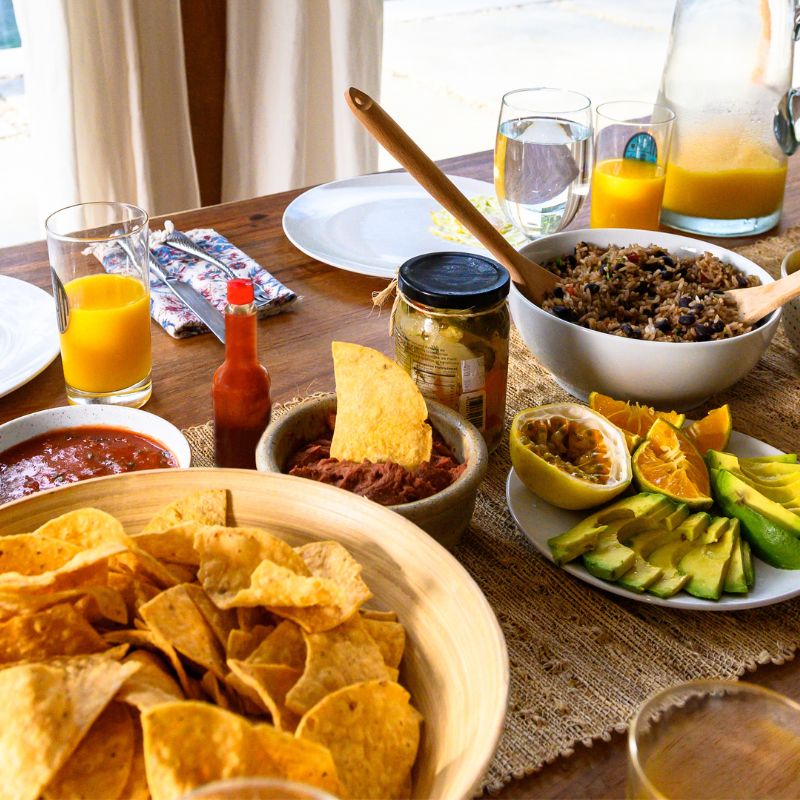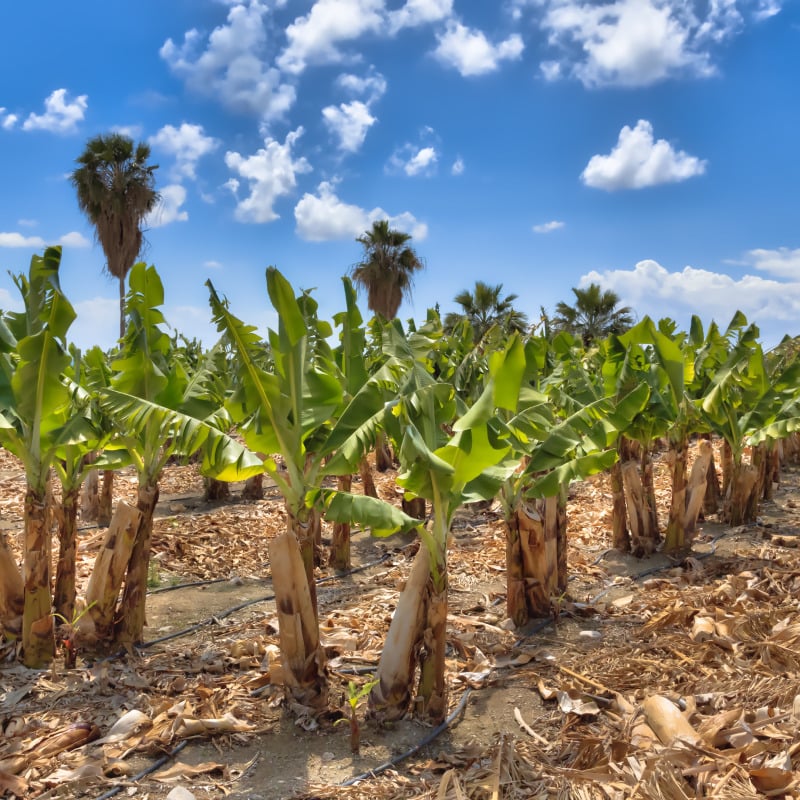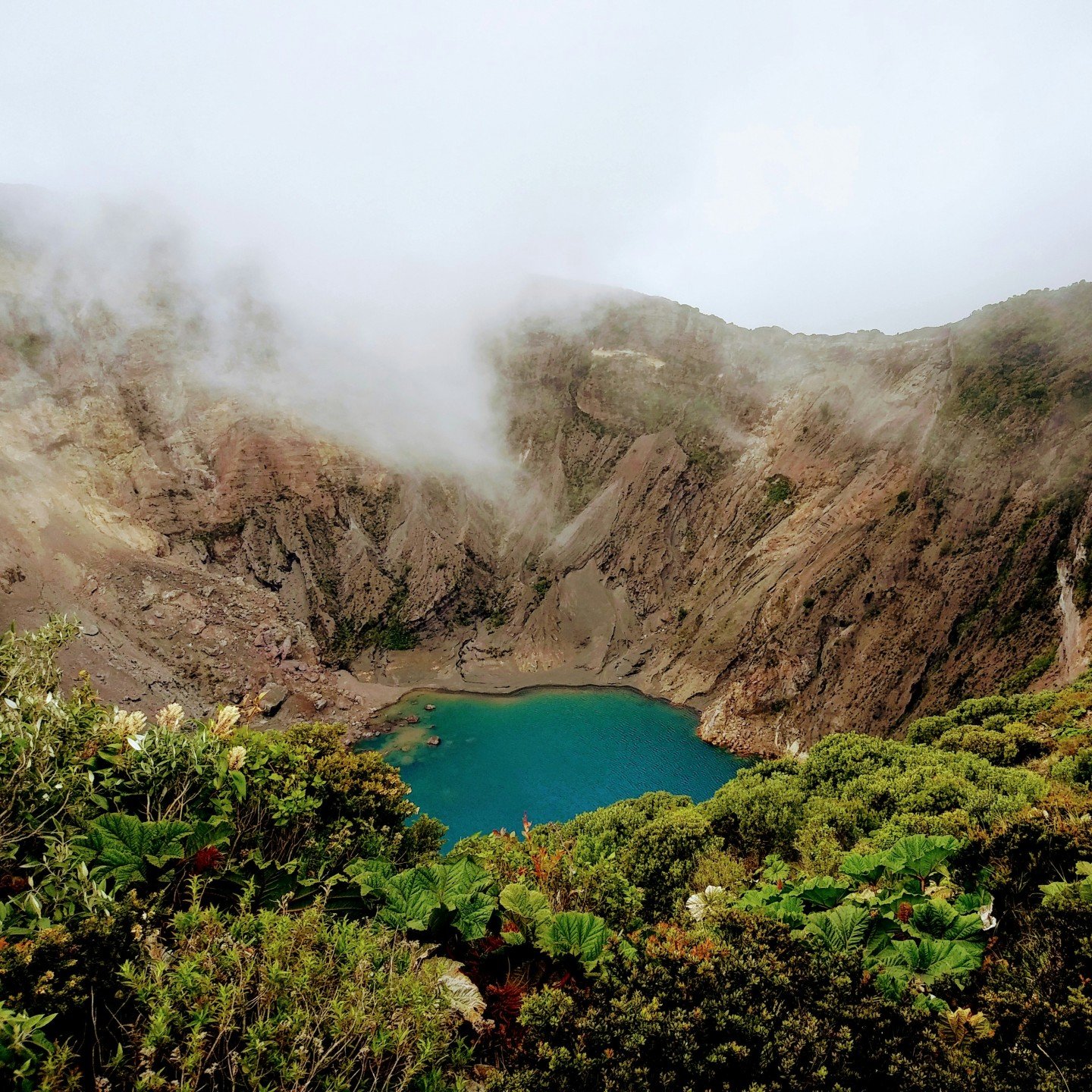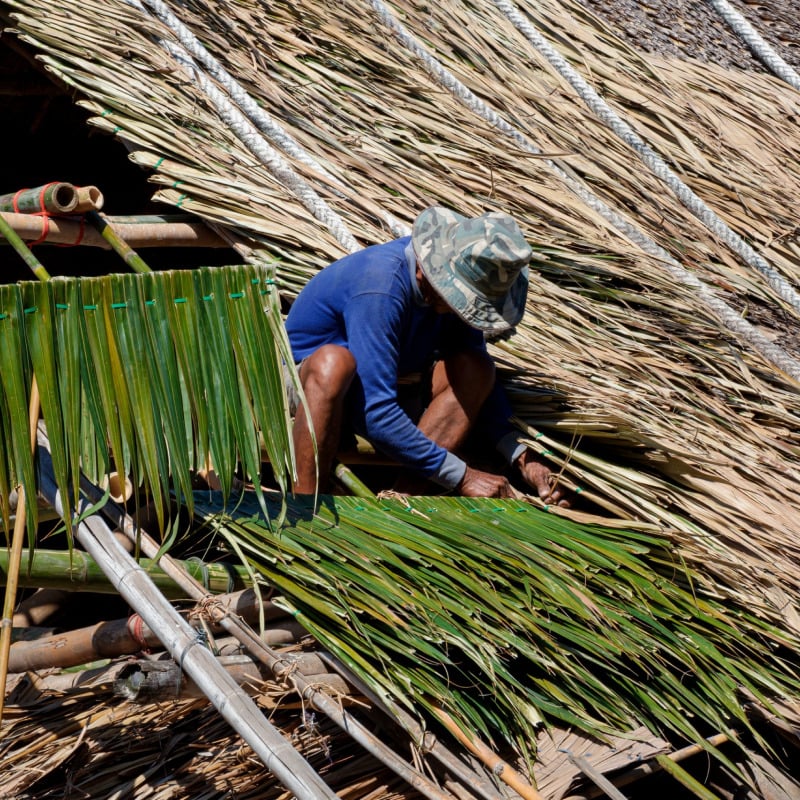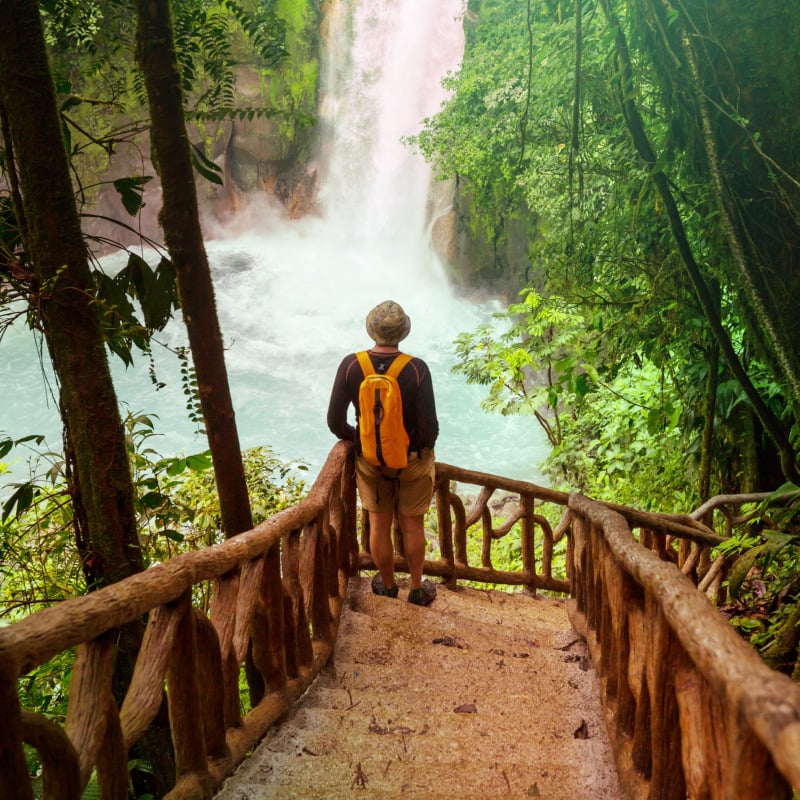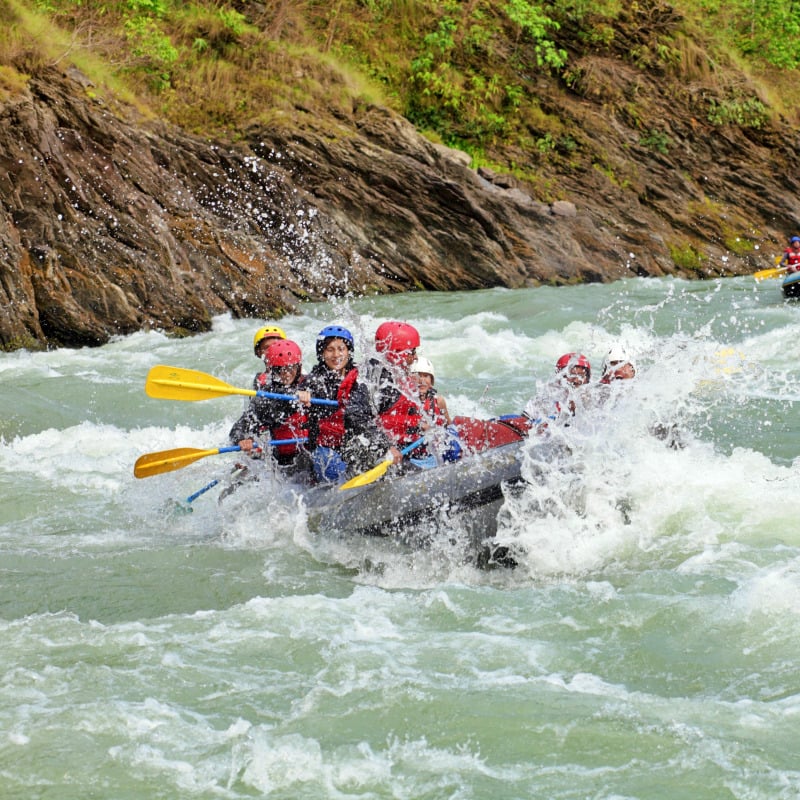
Knowledge is Power
Teaching English and Community Development Projects in Costa Rica
Travel to Costa Rica to teach English to children and support community development initiatives.
Program information
Teach English, learn Spanish and explore the Costa Rican town of Cartago. Contribute to the United Nations Sustainable Development Goal 4: Quality Education. We support both a classroom-based childhood development program as well as experiential education and non-traditional learning environments. In your free time, spot unique species in the nearby mountainous areas or enjoy exploring one of the nearby national parks.
Program overview
Travel to the Cartago Province in the Central Valley region of Costa Rica to join other volunteers from around the world on our childhood development project. Based at our community hub in Cartago, we focus on topics like English language, life skills (such as physical activity and teamwork), and conservation education. On the weekends, you and your fellow volunteers can visit places like Turrialba Volcano National Park for a hike or relax on the beaches of Puerto Viejo.
The Cartago community – including the school system and non-governmental organisations – often requests English education to support the growing number of English-speaking tourists and to raise the employability of local community members. Local employers highly value English speakers to assist international visitors and support overseas customers and operations.Therefore, English language education can assist children with improving their future employment opportunities. While supporting English education, you will also have the opportunity to improve your own Spanish language abilities.
In addition, all children need exposure to a range of specific play activities to effectively develop the skills required at their age level. This might include sports to increase their gross motor skills, art, crafts and music to develop their fine motor skills, and group activities like games to develop effective social skills.
Highlights

Lead English classes and workshops designed to stimulate economic and social empowerment through access to education, skills and cross-cultural dialogue.

Experience a unique way of life when you become part of the community of Cartago. Build friendships, expand your perspective and immerse yourself in Costa Rica’s rich Afro-Caribbean culture.
Activities
Some of the example typical activities you could participate in on this program.

Learn about community development ethics, covering GVI’s human empowerment principles, child protection, health and safety, and ethical guidelines.

Teach English to students ages 3–18+ years using either a structured curriculum or more informal and interactive conversational English classes.

Get crucial career-building exposure working and communicating within a diverse team and specific local context.

Develop self-awareness, leadership, resilience and confidence, with support and advice from experienced GVI staff members.

Use your spare time during the week to self-reflect, raise awareness on community issues on social media, or fundraise for a local project.

On the weekend, visit other islands or relax in a nearby resort. Or travel to Suva, a city which boasts many historical sites and cultural activities.
Skills
- Community empowerment
- Cross-cultural communication
- Social issues
- Student engagement
- Teaching English as a second language
- Teaching workshops
Partners
Some of the partners we work with on base.
Program details
Dates and prices
Itinerary
06:30

06:30
07:30

07:30
08:30

08:30
10:00

10:00
12:00

12:00
13:00

13:00
16:00

16:00
18:00

18:00
What’s included?
General | |
|---|---|
| Food | |
| Safe and basic accommodation (usually shared) | |
| Airport pick up (unless stated) | |
| All project equipment | |
| 24-hour in-country support from local staff | |
| 24-hour emergency desk | |
| GVI Experiences |
Activities | |
|---|---|
| Sustainable project work | |
| Data collection and research |
Pre-program training | |
|---|---|
| Pre-departure webinar | |
| Pre-departure training (online) | |
| University of Richmond endorsed specialisation course |
Welcome training | |
|---|---|
| GVI welcome presentation | |
| Health & safety | |
| Local culture & environment | |
| UN SDGs | |
| Impact & ethics | |
| Child protection |
Certificates | |
|---|---|
| Program certificate | |
| University certificate – specialisation (University of Richmond) |
Not included |
|---|
| Flights |
| International and domestic airport taxes |
| Medical and travel insurance |
| Visa costs |
| Police or background check |
| Personal items and toiletries |
| Additional drinks and gratuities |
Life On Base
Base Photos
Travel to the central Costa Rican city of Cartago – one of the oldest cities in Costa Rica and full of lush greenery and volcanic views. Located in a province that is teeming with national parks, volcanoes and farmland, our community hub is in close proximity to many local attractions. Within 45 minutes by bus, participants can be in downtown San Jose where they can watch a professional theatre production, catch a football game at the national stadium, or visit the National Museum and learn more about Costa Rica’s history that has shaped its unique political positioning in the Americas. Participants can also travel three hours to the east and be on the beach by sundown listening to Caribbean music and eating fresh ceviche. Or you can enjoy all that our community hub has to offer – from the local football stadium a 5-minute walk away to the lush greenery of the public university to the famous basilica in downtown Cartago to meeting individuals from all over the world who are there for the same reason you are — to make an ethical impact.

Accommodation
You’ll share a house that has basic bedroom and bathroom facilities with other participants and GVI staff....

Transportation
We are located within walking or driving distance of our projects. You can expect up to a 30-minute drive ...

Communication
You’ll have access to long-distance communications whilst on the project, but bear in mind that the connection may not be as reliable as back hom...

Meals
You’ll take turns preparing breakfast for the group, which typically consists of porridge, cereal, or toast, accompanied by fresh tropical fruit,...

Climate
Located in a mountainous region of central Costa Rica and in close proximity to the equator, Cartago enjoys a fairly consistent climate. <...
GVI experiences included in your program, at no extra cost.
We want you to make the most of the chance to live in – and contribute towards – the most diverse and unique wildernesses and communities on earth. Introducing GVI Experiences – immersive adventure, cultural and wellness activities exclusive to GVI that have been specially designed in collaboration with our local partners to support and stimulate sustainable economic development.
Enhance your impact. Expand your adventure. Explore your world.
Free time
Joining a program not only allows you to collaborate with local communities, but also offers plenty of opportunities to explore the surrounding areas or travel further afield over weekends to see what other parts of the region have to offer.
Field staff are a great source of advice, and have helped us put together the following information on local travel options. Many decide to travel before or after their experience (subject to immigration restrictions), solidifying the lifetime friendships established on the program. Please note that the below suggestions are not included in the program fee, and are for you to organise at your own expense.
Weekend Trips

San Jose
Explore the bustling capital of Costa Rica for an insight into the country’s heritage and modern lifestyle. Due to its dense urban population, Sa...

Irazu volcano national park
Take some time to explore the Irazu Volcano National Park. Peaking at 3,432.00 metres, Irazu is famed for being the largest and highest active vo...

Coffee plantation tour
Costa Rica is known for producing some of the world’s highest quality coffee beans and Cartago is just one...

River adventures
Just 30 minutes away in Turrialba, there are many rivers in the area to explore on a kayak or canoe. If you’re feeling more adventurous, you can ...
Further Travels

Puerto Viejo
Well known for the Salsa Brava surf break that people travel from all over the world to experience, as well as beaches like the black-sand Playa ...

Surfing
Costa Rica is well known as a surfing destination and the Pacific Coast is home to a number of incredible beaches. You can also explore areas lik...

Manuel Antonio National Park
Lush tropical rainforests converge with the stunning beaches of the Pacific coast. Hike the forest trails ...

Other Latin American nations
There are plenty of opportunities for further exploration throughout Latin America. Travel south to Panama and Colombia, or north to Nicaragua an...

National parks
With some of the greatest biodiversity in the world and a commitment to preserving this unique natural her...
Cultural Immersion
Engaging intimately with a new context teaches global awareness, adaptability and critical thinking – skills highly valued in the modern marketplace. Local and cultural immersion is encouraged on all our programs around the world, and will also be one of the most enjoyable aspects of your experience. Luckily, there are many different activities that you can get involved in during your free time, or before and after your program.
On our community programs, the focus is on cultural topics, while on marine or wildlife programs the emphasis is more on the environmental element. Use your evenings and weekends to explore topics like local cuisine and religion, or how sustainable development challenges are affecting local contexts.

Churches and cathedrals
You’ll find many beautiful churches and cathedrals within the forests and hills of Cartago.

Festivals
March to April: Easter is a popular holiday in Costa Rica and is celebrated with elaborate processions.

Spirituality and religion
The majority of Costa Ricans identify with the Roman Catholic religion. Other religions such as Buddhism, Hinduism, Judaism, Islam, and Rastafari...

Dancing
Dancing is an integral part of Costa Rican culture. Locals learn to dance the fluid ballroom styles of cumbia, salsa, bolero, and the merengue fr...

Cooking
Food in Costa Rica is a combination of Spanish, South American, Caribbean and American influences. Common dishes include corn tortillas, tamales,...

Languages
Spanish is the country’s official language and the majority of the population speaks Spanish. You’ll also hear indigenous languages like Bribri, ...
Speak to alumni

If you’d like to find out what the experience of joining a GVI project is really like, simply contact us and we’ll put you in touch with one of our many Alumni.
We’ll try to match you to an Alum based on your location, nationality, age, stage of academic career, gender, and program interests. This allows you to gain insights into the experience that is most relevant to you.
Depending on your location you might be able to speak to an Alum over the phone or online, or meet up with them face-to-face at a coffee shop nearby. We also run a series of small events around the world where you can speak to GVI Alumni, Ambassadors and staff members.
Get a first-hand perspective
Parent Info
‘If only every student could do this. It changes your life in all the right ways,’ says Chris Heritage, parent of Luke Heritage, one of our teen volunteers who has participated on two GVI programs, one in Costa Rica and another in South Africa.
We are a parent-run organisation that is incredibly serious about health and safety, and increasing the impact, as well as the long-term career benefits of our programs. Our programs help young people develop the skills to select a career path that is personally fulfilling, and live a life aligned to the well-being of our planet and the global community.
GVI is a proud member of the Gap Year Association.
Ken and Linda Jeffrey, whose son Sam volunteered with GVI in Thailand, talk about how the experience affected Sam. He also went on to volunteer with GVI again in South Africa. ‘I know it sounds like a cliche but in a sense, he did go away as a boy and he came back as a young man. Both of us could recommend GVI without any hesitation to any other parent thinking about exploring an opportunity for their children to explore the world and to see different parts of it.’
Parent Info Pack
Download the Parent Pack and learn more about:
Our staff: All our projects are run by staff, selected, vetted, trained, and managed by our central office.
Health and safety: Our safety practices include a child and vulnerable adult protection policy and high participant ratios.
Staying in touch: See what’s happening on base, by following a hub’s dedicated Facebook page.
Free parent consultations: We would love to talk to you about exciting opportunities available for your child.
Arrivals




When it comes to support, we ensure that each participant is provided with unparalleled, 360 degree support, from your initial contact with the GVI Family, all the way through your program, and even after, as you become part of the GVI Alumni Team.
As part of this promise, we will ensure, whenever possible, that one of our dedicated staff will be available to meet you at the airport. In most locations, we also set up a Whatsapp group to help with managing airport arrivals.
We will arrange with you prior to your departure that, should you arrive in the agreed upon pick up window, a member of our staff will be there to welcome you, easily identifiable in a GVI t-shirt or holding a GVI sign and wearing a friendly smile.
This means there will be someone there to greet you as you land, and from there you will be transported to your GVI base to start your adventure and meet the rest of your team.
Your Impact
All of our programs have short-, mid- and long-term objectives that align with the United Nations Sustainable Development Goals (UN SDGs). This enables us to report on our collaborative impact across the world in a streamlined manner, measuring which UN SDGs we are making a substantial contribution to. Furthermore, this will help our local partners and communities measure and visualise their contribution to the UN SDGs.
Prior to your arrival on base, you will be educated about the UN SDGs. Then once you arrive on base, you’ll learn about the specific goals we have in this particular location, our various objectives, and also clarification of how your personal, shorter-term involvement contributes to these.
Our aim is to educate you on local and global issues, so that you continue to be an active global citizen after your program, helping to fulfil our mission of building a global network of people united by their passion to make a difference.

In 1869 Costa Rica was the first country in the world to make primary education both free and obligatory, funding the education program through the state’s share of the great coffee wealth. In 1948, the country abolished its national army and shifted the portion of its national budget allocated to armed forces to the education system. By the late 1970s/ early 1980s, roughly 89% of the population were able to read and write. Costa Rica now boasts a literacy rate of around 98% for people aged 15 years and older. In 1994, a policy to place a computer in each of the nation’s 4,000 schools, plus obligatory English classes, was implemented.
Despite this, education is not readily available to everyone. Elementary schools can be found in every community, but high schools are not as common as they are not mandatory and many students stop attending school after the age of 13. Many cannot afford the required uniforms, and rural schools often lack books for students. Children often spend as little as three hours in school as the class schedule is divided into two sessions in order to accommodate the number of students.
GVI has been working in local communities in Costa Rica since 2011. Currently, we work in and around Cartago to support community and community development, women’s empowerment and education focused initiatives.
The UN Sustainable Development Goals
All of our programs have short-, mid- and long-term objectives that align with the United Nations Sustainable Development Goals (UN SDGs). We want to be able to measure our collaborative impact across the world in a streamlined manner, so all our staff and volunteers know which UN SDGs they’re making a substantial contribution to. This also helps our local partners and communities measure and visualise their contribution to the UN SDGs.
Prior to your arrival on base, you’ll be introduced to the history of the UN SDGs. Then, once on base you’ll learn about the specific goals of your location, the long-, mid- and short-term objectives, and also insight into how your personal, shorter-term involvement contributes to these goals on a global level.
Our aim is to educate you on local and global issues, so that you continue to act as active global citizens after your program, helping to fulfil our mission of building a global network of people united by their passion to make a difference.
The main UN Sustainable Development Goals that we contribute to this project include Goal 4: Quality Education and Goal 5:Gender Equality.
Our Partners in Cartago
Our current partners include the public university, Universidad Estatal a Distancia (UNED), as well as Proyecto Abraham, Proyecto Bethany and Parque la Libertad. We support our partners by contributing to projects with a focus on early years education, teaching English and women’s empowerment.
Project objectives
GVI Cartago’s long-term objectives:
1. Graduate participants who are impassioned to change the world and encourage critical thinkers through our local and international communities.
2. Contribute to breaking the cycle of poverty in Cartago as well as the nearby communities of La Union and Patarra.
3. Improve English literacy levels in the Cartago community and surrounding areas.
4. Ensure that all project goals and objectives are conducted in an inclusive and culturally sensitive manner that benefits local communities.
5. Learn from historical and systemic injustice and take an active role in resisting the continuation of harmful practices internationally.
Our Ethics
Below is a list of core ethics and best practices we believe are essential to the operation of high quality, ethical volunteer and sustainable development programs. We believe that all responsible volunteer and sustainable development operations should focus upon these principles. If you are considering volunteering, these are some of the key considerations you should question, to ensure that your time and money contributes towards positive change.
We want to constantly develop our own understanding of ethical best practice. In so doing, we aim to provide an exemplary industry standard for other education institutions, international development organisations, and social enterprises. Our Badge of Ethics stands for the drive to always do good, better. Find out more, click on the Badge below.
Our 10 ethical commitments
01
Locally Driven, Collaborative Projects
We aim to design all our projects in collaboration with local organizations and communities and ensure that they are locally driven.
02
Clear Objectives & Sustainable Outcomes
We aim to clearly define short-, mid-, and long-term objectives with sustainable outcomes for all our projects.
03
Impact Reporting
We aim to track, record, and publish the impact of each of our projects.
04
Working Against Dependency
We aim to build in-country capacity by assisting local organizations in becoming self-sustaining.
05
Responsible Exit Strategies
For each local organization we work with, we aim to have a plan in place for withdrawing support responsibly.
06
Clear Roles & Specialized Training
We aim to ensure that every participant is assigned a clear role and that they are fully trained and supported to carry out their work by specialized staff.
07
Respect for all
In all our actions we aim to respect the skills and efforts of all and seek to protect the rights, culture and dignity of everyone who engages with GVI.
08
Local Ownership
We work to ensure that credit for the results of any project, along with any data collected, research conducted, or Intellectual Property developed, remains the property of local organizations.
09
Transitioning from the Orphanage Model
We do not condone and aim to withdraw support of orphanages and residential care centers.
10
Child and Vulnerable adult policies
We will live by our Child Protection and Vulnerable Adult policies.
Continual Development
As an organization, GVI is committed to striving toward best practice, and to educating both our potential participants, our partners, and the world at large about them. Both the volunteering and sustainable development sectors are increasingly, and rightly, under scrutiny. Many recent local and global articles highlight poor practices and questionable ethics. GVI is widely recognized for striving to apply global best practice in the volunteering, education and sustainable development sectors throughout our operations by reputable organizations such as ChildSafe.
However, global best practice is always evolving and we dedicate both time and resources to engage with internationally respected experts and learn from the latest research to ensure our programs both fulfil their potential to create maximum positive impact, and minimise their potential to create unintentional negative impact. Along with and as part of the sustainable development and volunteering community, we are constantly learning and applying this learning to practice. We do not always get everything right, but we seek feedback from our community members, partners, participants and our staff, and react accordingly. We know are already doing a great job, and feedback we have received confirms this, but we aim to do even better and are continuously refining our operations to improve upon our already excellent reputation.
Program ethics
No entertainment-based activities
We don’t support the use of wild animals for entertainment purposes. This includes riding animals, having them perform tricks, feeding or bathing them or getting close to them to take photos
No orphaned animal sanctuaries
We don’t encourage, support or allow the rearing of “orphaned” wild baby animals kept at a “sanctuary”. The conservation value of these types of programs is negligent and would only ethically be used in extremely rare cases
Guidelines for touching or movement restriction
When wild animals are restricted for conservation purposes we follow the guidelines of Fair Trade in Tourism South Africa (FTTSA), approved by the Global Sustainable Tourism Council.
Animal welfare guidelines
We ensure that the Five Freedoms of Animal Welfare are followed. These include the freedom to express normal behaviour and freedom from distress, discomfort, hunger, thirst, fear, pain, injury or disease.
Local community empowerment
We ensure that conservation efforts are also always locally led, that community needs are front-and centre of any conservation effort and that our participants, projects and partners work to increase local community engagement in local conservation efforts.
No veterinary programs
We don’t offer any veterinary programs or animal rescue and rehabilitation programs. We don’t allow participants to do any work they would not be able to do in their home country.
No orphanage programs
We don’t support or allow participants to work in institutional residential care facilities, also known as orphanages. We partner with ReThink Orphanages and Freedom United.
Child and vulnerable adult protection policy
Our Child and Vulnerable Adult Protection Policy requires all our staff and participants to complete a criminal background check and to learn why you shouldn’t reveal a child’s identifying factors in photographs. We support the ChildSafe Movement.
No medical volunteering
We don’t offer any programs where our participants engage in medical treatment. This is because our participants aren’t typically qualified to do this work and would therefore not be able to do this work in their home country. Our participants only assist with public health programs.
No disability support programs
We don’t offer any programs where our participants work directly with people with disabilities. This is because our participants aren’t typically qualified to do this work and would therefore not be able to do this work in their home country.
Training
A GVI program is an investment in your career. No matter which you choose, you will be working toward improving your employability by mastering new social skills, gaining further technical expertise and earning qualifications in many cases. Most of our staff are, in fact, GVI Alumni, and we have helped many of our Alumni discover, move toward, and earn their own personal dream jobs. Each program includes introductory workshops, ongoing presentations, as well as on-the-ground professional support provided by our very own trained staff members. In addition, our training programs are critical for helping us to ensure the long-term impact of our sustainable development projects around the world.
For all GVI participants
Orientation: Travelling Responsibly and Ethically
Learn about the importance of child and vulnerable adult protection best practices and how to apply them while on project.
Orientation: UN Sustainable Development Goals
Introduction to the history and evolution of sustainable development, the United Nations Sustainable Development Goals (UN SDGs) and how these related to your project work.
Orientation: Further Opportunities for Impact
Learn about our country locations and further opportunities available to you during or after your program.
For all participants at Cartago
Community: Gender Equality
Learn about gender equality, skills development and examples of income-generating activities.
Community: Human Empowerment
Learn about our empowerment principles.
Certificates & qualifications

GVI Online Community Development course (optional)
In this course, you’ll explore the most common pitfalls of community development initiatives so that you can avoid them. You’ll also learn how to carry out community development work effectively and ethically and how local context impacts program development. After successfully completing the course, which you have the option of doing prior to your in-country program, you’ll receive a certificate from the University of Richmond.
This online course, valued at £295, is included in all volunteering programs. Full course details can be found here.
Support & Safety
We won’t sugarcoat it — traveling abroad is usually a complex process that carries an element of risk. But this is exactly why we’re passionate about providing extensive support throughout the process as well as the highest safety standards during the in-country phase. We believe that volunteering abroad should not only be impactful, but an enjoyable experience that carries as little risk as possible. This is exactly how we’ve been able to maintain our reputation as the most highly respected volunteering organisations in the sector over the past two decades.


Health and safety case studies

How GVI upholds health and safety
It takes courage to book a GVI program, get on a flight, and head off to somewhere new. Volunteering offers a level of cultural immersion that typical backpacking or holidays ju...

GVI's commitment to safety and security
As the saying goes: ‘Expect the best, plan for the worst’. Cliched or not, we take it to heart. This tenet is at the core of how GVI operates when it comes to promoting the heal...

How GVI remains prepared for natural disasters
The weather isn’t just a topic for polite small-talk here at GVI. We have emergency action plans in place for all scenarios. So when the weather, or other natural forces, takes ...

How GVI manages participants expectations
Once GVI has matched a participant to a program that suits their passions and goals, our team aims to set the right expectations for them. In the event that false expectations a...
Make the most of our unique programs with these exclusively curated local adventure and wellness experiences.
















Want to connect with some of our past participants about their adventures? Get in touch with hundreds of friendly ambassadors all over the world who would be more than happy to answer any questions.





